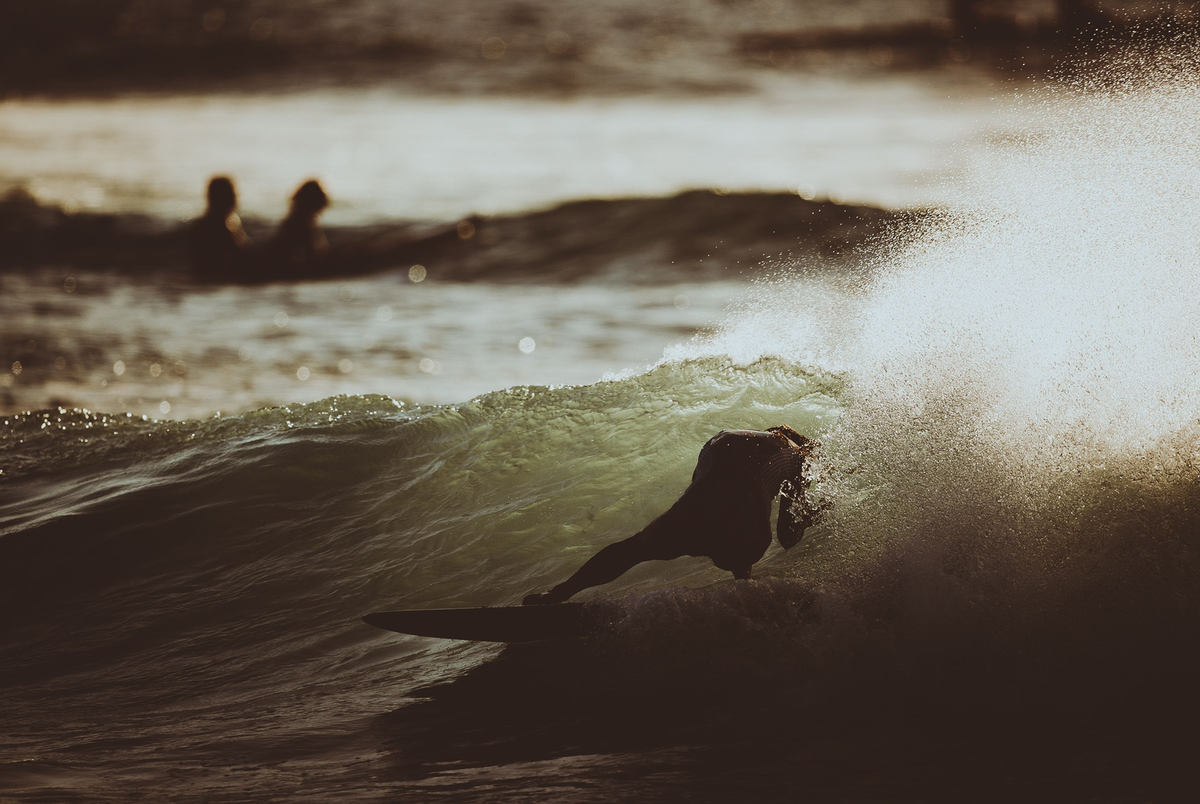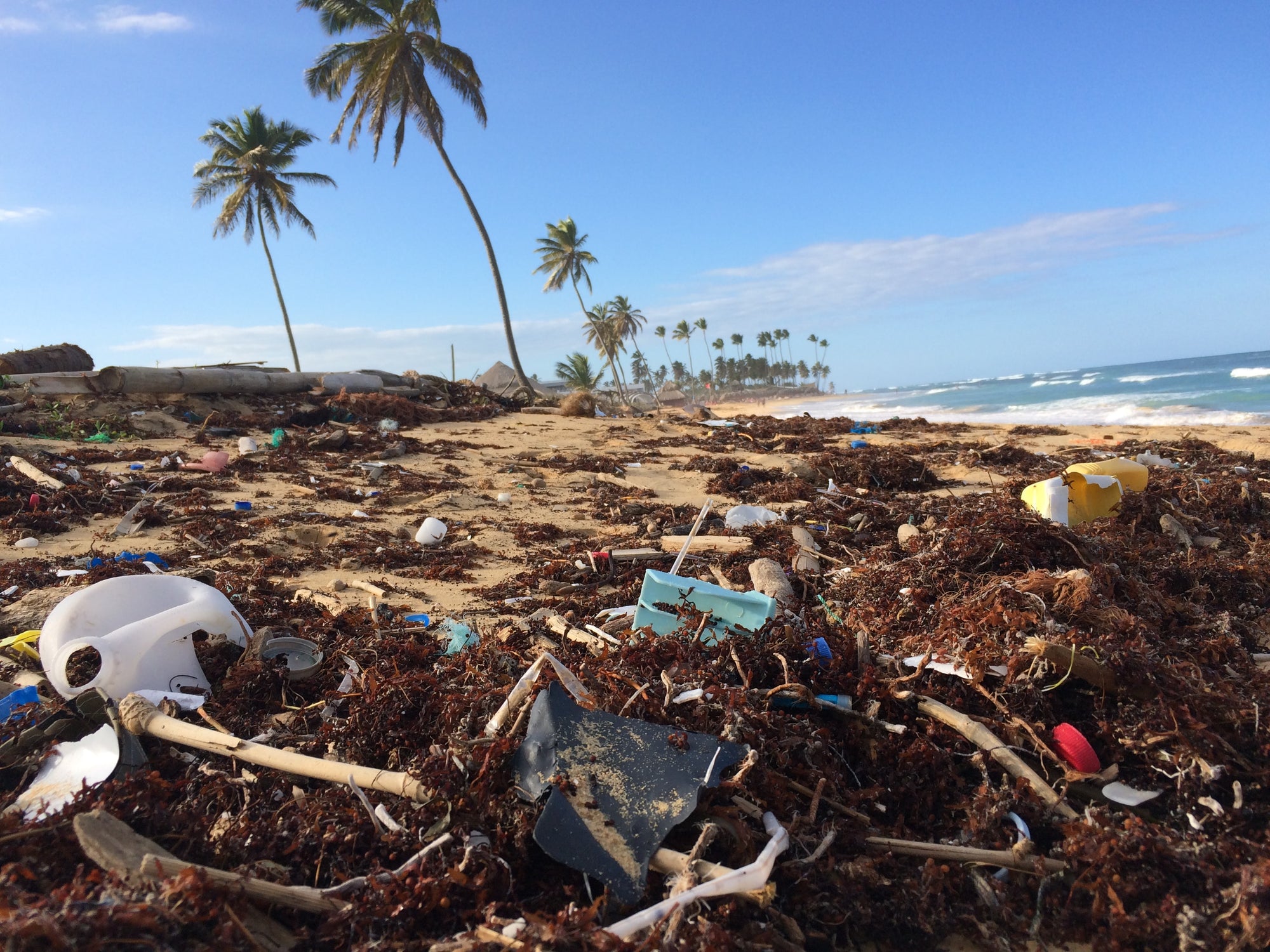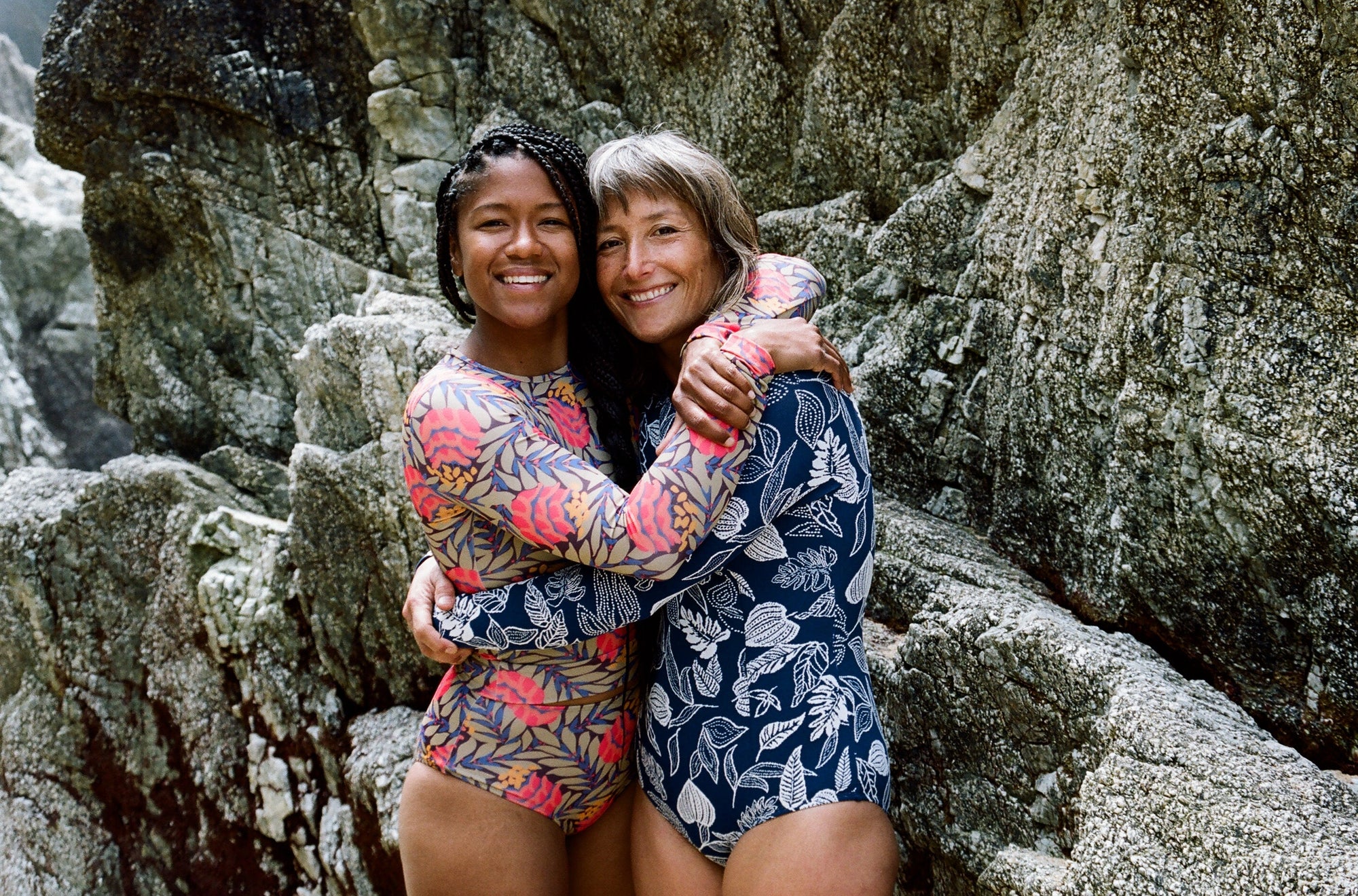The ocean is a life force. We feel it deeply as humans. Sciences continue to uncover and understand the magnitude of the ocean as a breeding source of life, of weather, of waves. As we further understand our mammal evolutionary path deriving from the ocean, it gives us perspective of the hundreds of thousands of years, or even millions of years it took for us to evolve into our human form. Yet in a mere spoonful of time in retrospect to our existence, we’ve covered our planet in toxic plastic.
We’re already finding plastic on the deepest ocean floors, its penetrated our sea salt, our rain, depositing itself on the tallest mountain peaks in the world. And only in this spoonful of time. Its unthinkable what the earth would look like and human health would be like if our current plastic creation continued its path for even just another hundred years, one more spoonful of time. We’ve so quickly morphed our planet into a plastic world. We have to envision a society beyond plastic because clearly, it's not in flow with our oceans, our lands, our very structures as living beings.
Opening words by Leah Dawson

The oceans gives us so much.
Whether you seek solace and respite in its soothing waters, find joy playing in the waves, explore the life blooming below the surface, or you simply enjoy reflecting upon its vast power and beauty, we all, in our own ways, have reverence for the ocean.
Seea was born from the deep love and connection we have to the ocean, and we honor her every day - especially on World Oceans Day.

But we know to love her is simply not enough; that the ocean's health is a direct reflection of and tied intimately to our health and the health of the entire planet. It is up to us to harness that love and channel it into action to protect the ocean for future generations to enjoy, and for the sake of all life.
We want to lead with hope and empower you with the tools and knowledge to help create a collective shift towards positive change.
There are lots of ways you can help the environment, but plastics have become a major problem, especially for the oceans, so we're sharing:
5 Ways You Can Tackle the Plastic Problem to Protect the Oceans (and Planet!)

-
Rethink how you wash your clothes
Scientists estimate that textiles produce 35% of the microplastic pollution in the world’s oceans , which would make textiles the largest known source of marine microplastic pollution. That’s about 2.2 million tons of microfibers entering the ocean every year!
One way to try mitigate this on an individual scale is to install filters on your washing machine that catch microplastics. For a more affordable option, wash your synthetic clothes in bags designed specifically to catch microplastics. The Guppyfriend bag helps to reduce breakage, but collects the fibers that do break, trapping the microplastics in the bag and preventing them from washing down the drain.

The added benefit is that this will help your clothes last longer, which means a longer lifecycle and less chance of ending up in the landfill.
Other ways to prevent microplastics from entering the oceans via your washing machine is to reduce friction and abrasion, which leds to microfiber shedding, in your wash by using green liquid detergents instead of powders, reducing or skipping the spin cycle, and washing fabrics of similar textures together. Finally, washing on warm or hot temperatures weakens the yarns, leading to more breakage over time, so opt for cooler water!
-
Choose products with less or no plastic packaging
According to the UNEP, Approximately 36 percent of all plastics produced are used in packaging, including single-use plastic products for food and beverage containers, approximately 85 percent of which ends up in landfills or as unregulated waste.
Simple changes like opting out of using plastic produce bags at the grocery store can make a difference over time. If you have access to a store with a good bulk selection, you can bring your own bags or jars and refill dry goods like rice, beans, nuts, and spices. Your reusable containers don't have to be fancy - use and reuse old take-out containers, or whatever you happen to have. If you purchase a plastic water bottle, refill it until it needs to be recycled. The goal is to keep things out of our waterways and landfills, so the longer lifespan we can give to the products we use the better.
Products that have typically been available exclusively in plastic are now becoming more widely available in alternative packaging. One convenient switch is from liquid shampoo and conditioner in plastic bottles to shampoo and conditioner bars. They are much easier to travel with, last a long time, and have much less packaging overall. We love the botanical hair care bars by woman-owned Flora Flora Co. which contain zero plastic packaging.

In the same vein, "Waste Free" shops are popping up everywhere these days and many of them offer bulk in household goods like cleaning supplies, body soaps, and laundry detergents.
We realize that buying bulk is not accessible to everyone because it is more expensive up front, and that not everyone has access to these types of stores. So, don't fret if you aren't able to make these changes. This isn't about being perfect - it's about doing what you can if you have the resources to do so.
-
Recycle
You may have heard relatively recently that recycling isn't an effective way to keep plastic waste out of landfills, and that recycling doesn't actually matter. If you've been among the many who have bought into this myth, we urge you to get back onto the recycling train! We'll expand on this misconception in an upcoming post about recycling next week, but please continue to recycle!
Sustainability consultant Tina Nguyen says, "It’s true, our recycling system has some serious issues. But, recycling still matters. Recycling is very specific to the area that we live in, so it’s important we look at it from a local angle. There are inherent benefits to recycling with many positive trends on the horizon, so stay optimistic! Recycling diverts waste from landfills. Landfills emit greenhouse gasses which are linked to climate change. And climate change, as we know, is linked to a multitude of environmental issues. Related to the ocean alone, climate change links to increased sea temperatures, sea level rise, ocean acidification, and coral bleaching, amongst other issues. When we participate in our local recycling services, we are reducing greenhouse gas emissions from landfills."
Key takeaway: recycling matters and can help keep plastics out of our oceans!
-
Get grassrootsy!
Beyond individual changes in one's day-to-day life, the biggest changes can happen when we come together as a community.
Often times the most effective way to create change and build the world we deserve and envision is by organizing locally - creating connections, sharing resources, and working together toward common goals.
Alexia Brugman, Executive Director of Encinitas based organization Changing Tides Foundation says, "When people start sharing with their communities this is when change happens. Even a once monthly highway cleanup can bring converts over to the fight against plastic. It’s ok to inch forward as long as we are moving forward and as soon as people realize that what they do does matter, we can start effecting change. "
Start getting active in your community by finding out if there are any groups or boards tackling the plastic problem.
Brugman says,"writing letters to local government, calling a Senator, asking to speak at a council meeting - the small wins are becoming significant. The Encinitas ban on mylar balloons and Los Angeles County passing an ordinance requiring single-use food ware to be compostable or recyclable are all good examples of how we have more power on a local level where Federal government might be failing us because they’re too cumbersome and influenced by the big spend of large food and beverage companies."
At the very least, community organizing helps to strengthen connections, and contributes to thriving, resilient, and healthy communities, which ultimately has enduring positive ripple effects for people and the planet!
5. Educate yourself and help drive policy from the top
Real shifts and changes will happen when policy is enacted that puts protections in place for the environment and forces the biggest polluters, like the plastic and fossil fuels industries, to be held accountable.
Seea team rider Leah Dawson says, "Policy plays a major role in our protection of the planet, and the more of us that spend our lives in the ocean participate in advocating for it on a local and federal level, the sooner we are going to start righting the wrongs of the last 70 years of uncontrolled pollution and plastic production. "
It's good to educate yourself on current policy, but don't feel like you need to get involved with it directly - maybe that's not the best fit for you. You can use your own unique skills to support organizations and groups already doing the work. Often times, organizations, especially non profits, will need volunteers with various skill sets in areas like graphic design, fundraising, copy writing just to name a few. Look up your favorite organizations to see if they have volunteer needs. Or, if you are able to do so, you can offer financial support to these groups with donations.
We recommend checking out Surfrider, which is a well respected organization with chapters all around the country. They have extensive resources on their website about plastic pollution and current policy, along with information about other work they do to keep our oceans clean, safe, and accessible.
We hope this offers some attainable ways you might begin to get involved on your own and help advocate for our oceans and our planet.








